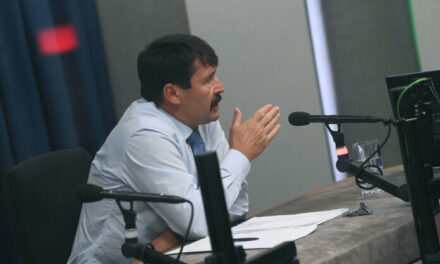Many studies highlight the fact that students are doing worse in schools every year. Among the weakest subjects are mathematics and knowledge of the mother tongue.
Boys are ahead of girls when it comes to studies
The study "MINT Nachwuchsbarometer 2023" by the German Academy of Science and Technology (Acatech) and the Joachim Herz Foundation highlights that the overall performance of fourth graders has deteriorated every year in the past decade.
For example, the performance of fourth-graders in the field of mathematics dropped from 500 (2011) to 462 (2021) points on a test, which corresponds to roughly one academic year behind, according to experts. In this subject, girls perform much worse than boys - it is clear from the analysis of the results.
22 percent of fourth-graders were classified in the so-called "risk group" in mathematics in 2021 - this is double the results of 2011, i.e. there are twice as many in this category. Bavaria has the smallest risk group with 13 percent, and Bremen has the largest with more than 35 percent.
However, another aspect is also telling: children from immigrant families generally perform much worse. In 2021, the difference in mathematics performance between first-year children with a migration background and those without a migration background corresponded to nearly one and a half school years. Specifically, the mathematics performance of students without a migration background decreased from 515 to 487 points between 2011 and 2021. The performance of students with a second-generation migration background (i.e. born in Germany) decreased from 461 points to 434 points. Meanwhile, the performance of students with a first-generation migration background (i.e. born abroad) dropped from 460 to 400 points.
Other subjects are not suitable for German students either
Educational researchers urge urgent action, as many fourth-grade children are performing worse and worse in terms of German language skills in addition to mathematics, and there is also a significant proportion of children who struggle with behavioral problems.
The "alarming findings" of such studies should be interpreted as a wake-up call
– reads the report that scientists prepared for the permanent conference of the German Ministers of State, Education and Culture a few months ago. The study was compiled by an advisory board of 16 education researchers who regularly provide expert reports and recommendations for education policy in Germany.
This shows that, in many cases, primary schools fail to teach all children the basic competencies. The authors referred to the results of a previous study, according to which
around one in five children in fourth grade do not reach the minimum standards in German and mathematics, and almost one in four seven- to ten-year-olds are at increased risk of psychological problems.
According to the experts, the issue of primary school studies - in addition to the teacher shortage - is currently one of the most pressing in education policy because of the threat of long-term negative effects.
Elementary school students who cannot read, understand, count, and write adequately when they move on to the next school level will be at a disadvantage in their further education, up to graduation, and probably in life. However, in an era of labor and skills shortages, society depends more than ever on young people receiving good education and training- warn the researchers, who at the same time do not simply blame primary schools. According to the report, it should be taken into account that the framework conditions for education in institutions have changed significantly in recent years.
This applies, for example, to the growing proportion of children whose families do not speak German. According to the report, this affects one in five children between the ages of three and six. The admission of children with special educational needs and the integration of newly immigrated children also place new demands on primary school teachers.- can be read in the study, which therefore also points out that the institutions that suffer the most from the phenomenon are those in which the majority of children with a migration background study. The experts recommend some measures to reverse the negative trend seen in recent years in mathematics and German language skills, as well as to prevent the development of behavioral problems among students. These include, for example, the need to understand the process already in kindergarten and to deal more seriously with the acquisition of different skills.
"We simply cannot accept that an increasing number of students do not meet the minimum requirements. Primary schools urgently need to focus on basic language and mathematics competences. This requires not only individual measures, but the development of a strategy that holds the entire system, from the school to the school supervision to the Ministry of Education, accountable. This is the only way primary schools can fulfill their educational task"- writes Felicitas Thiel , one of the authors of the study. The experts recommend more training for teachers and also warn that the shortage of teachers in education must be alleviated as soon as possible. They also recommend that schools increase German language and math lessons and check several times a year how much the students' results are improving - if they are improving at all.
According to the report, the measures should be taken "in the coming months and years" to ensure that German primary school students acquire basic competences and ensure minimum standards.
Featured image: Unsplash












